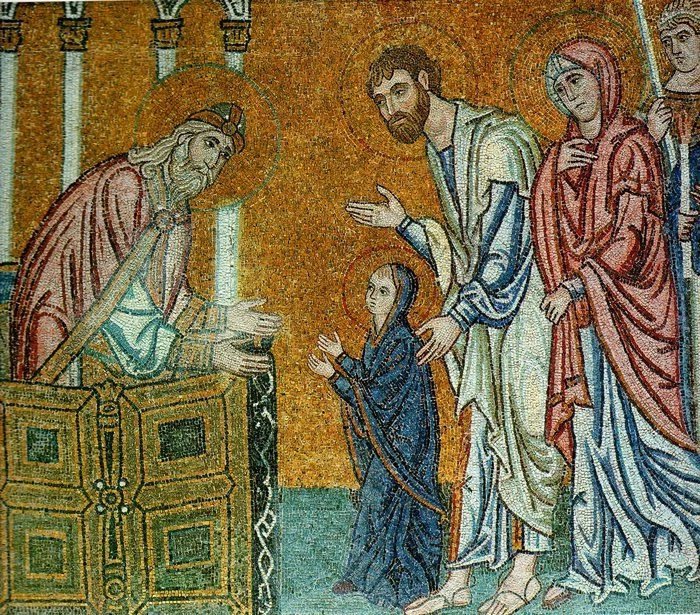“‘When these days are over it shall be, on the eighth day and thereafter, that the priests shall offer your burnt offerings and your peace offerings on the altar; and I will accept you,’ says the Lord God. Then He brought me back to the outer gate of the sanctuary which faces toward the east, but it was shut. And the Lord said to me, ‘This gate shall be shut; it shall not be opened, and no man shall enter by it, because the Lord God of Israel has entered by it; therefore it shall be shut…’” (Ezek 43: 27 – 44: 2)
This is one of the three Old-Testament readings at the Vespers-service of the Entry of the Theotokos into the Temple, celebrated tomorrow (NC). The three readings are called “Paremia-s“ (паремии) in Slavonic, from the Greek word “παροιμία,“ meaning “parable.“ The readings are called “parables“ in the context of this church-feast, because they are understood “allegorically“ (the word “allegory“ coming from the Greek words“allos“ and “agorevein,“ meaning “to interpret otherwise“). In the case of the passage from Ezekiel, quoted above, the “shut gate,“ through which only the Lord God of Israel “has entered,“ is understood to signify the virginity of the Most-Holy Theotokos, by which the Son of God has entered this world.
Thank you, Most-Holy Theotokos, for also being our “gate,“ by which communion with God’s only-begotten Son, in the flesh, becomes possible for us. Thank you, for allowing yourself to be led into the Temple, through the gates of the Temple, that you yourself may become the Gate and the Temple of the Lord in our midst. “Rejoice, through whom joy shall shine forth! Радуйся, еюже радость возсияет!“






